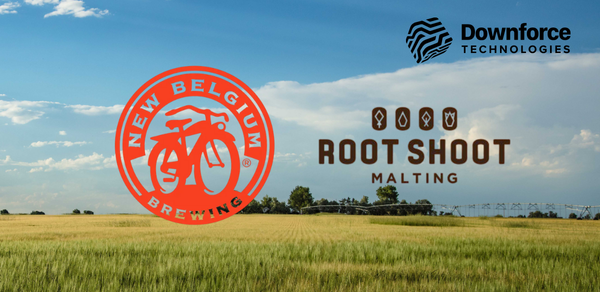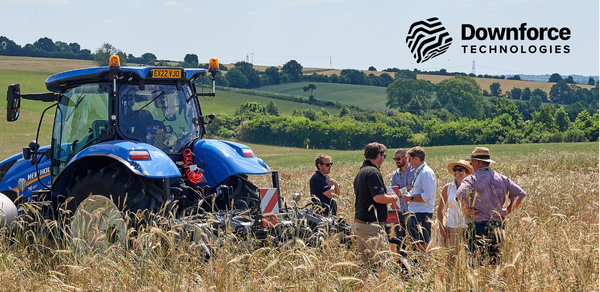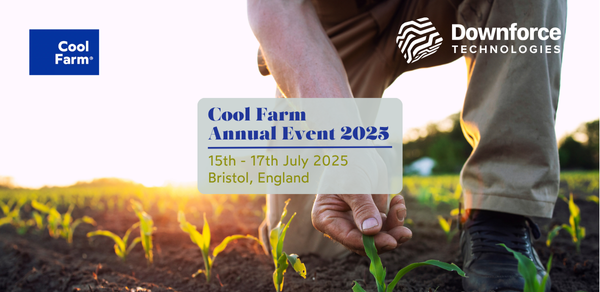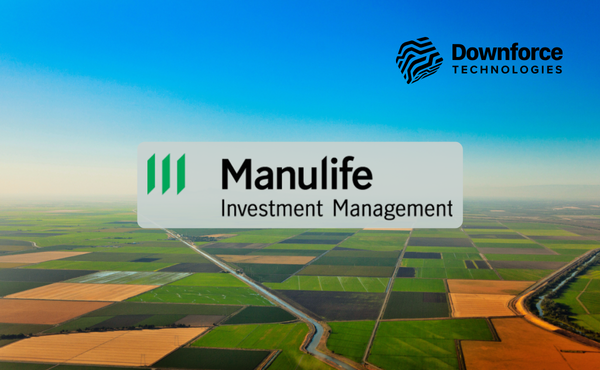From Field to Food
As the food and drinks industry sets its sights on achieving Net-Zero ambitions, access to accurate, high-quality data on the environmental impacts of food production is paramount. At Downforce Technologies, we specialise in providing science-led, nature-based intelligence on soil health and soil organic carbon (SOC) to support sustainable practices throughout the food and drink supply chains.
Promoting Healthy Soil: The Cornerstone of Sustainable Food Production
In the pursuit of sustainable food production, food retailers, manufacturers and producers cannot overlook the impact they have on soil health. A thriving soil ecosystem serves as the foundation for producing high-quality, nutritious food, reducing reliance on synthetic fertilisers, and fostering sustainable land use practices. By prioritising and investing in soil health, food brands and retailers can enhance the overall sustainability of their supply chains and contribute to building a more environmentally conscious industry.
The Benefits of Data-Driven Outcomes
Regenerative agriculture relies on capturing baseline data to measure and monitor sustainability activities, providing validation for your efforts and meeting disclosure requirements. By adopting a data-driven approach, you can achieve measurable and impactful outcomes that drive positive change in your supply chains.
● Resilience & Risk Management: Regenerative farming practices, such as diversification of crops and improved soil health, can enhance the resilience of agriculture to climate change. This reduces the risk of supply chain disruptions due to extreme weather events or changing climatic conditions. By integrating improved soil health practices into sourcing strategies, food retailers can mitigate supply chain risks and improve the long-term sustainability and stability of their operations.
● Maximise Yields & Crop Productivity: Optimal SOC levels improve soil fertility, nutrient availability and water retention, resulting in increased yields and enhanced crop productivity. Investing in carbon enhancement measures promotes long-term soil health, creating a sustainable foundation for your farming operations and ensuring the productivity and viability of the land for future generations.
● Improve Water Retention & Drought Resilience: Soils with higher carbon content have superior water-holding capacity, enabling them to retain moisture for longer periods. Water scarcity is a pressing issue in many food-producing regions, and regenerative practices can help alleviate the strain on local water resources.
● Enhanced Product Quality, Flavour & Consistency: Healthy soils and increased SOC levels lead to nutrient-rich soils, better plant growth, increased yields, and better flavour and nutritional content in the produce. Retailers can benefit from consistent, high-quality products that meet consumer expectations and drive customer loyalty.
● Achieve Long-Term Cost Savings: While transitioning to regenerative farming may require initial investments and adjustment, it can lead to long-term cost savings for food retailers. By improving soil health, regenerative practices can reduce the need for synthetic inputs, enhance nutrient cycling, and minimise pest and disease pressures. These factors can decrease production costs and improve the overall profitability of farming operations.
● Biodiversity & Ecosystem Preservation: By supporting SOC-rich soils, food and drink retailers can contribute to the preservation of biodiversity, protect valuable ecosystems and promote sustainable land management practices.
● Social & Ethical Responsibility: By embracing nature-positive solutions, the food industry can foster a sustainable and equitable supply chain, promoting the well-being of local communities involved in food production.
● Consumer Demand & Brand Reputation: By transparently communicating your commitment to SOC and soil health, food brands can differentiate themselves in the market, attract environmentally conscious consumers and build trust and loyalty.
● Stakeholder Engagement: Net-Zero and Scope 3 reporting involve engaging with stakeholders, including customers, investors and regulatory bodies. By incorporating regenerative farming and SOC management into sustainability strategies, food retailers can demonstrate their commitment to environmental stewardship. This engagement can build trust and foster positive relationships with stakeholders, enhancing the credibility of Net-Zero and Scope 3 reporting efforts.
Verified Data for Sustainable Impact
Armed with insights provided by Downforce Technologies, regenerative agricultural practices grounded in evidence can be implemented, soil carbon sequestration can be proven, and the impact of sustainability strategies can be measured and modelled.
Our integrated approach enables scalability across multiple sites, counties, or even countries, eliminating a major barrier to measuring natural capital. Aligned to the ISO14064 standard, the intelligence provided by Downforce Technologies allows you to demonstrate adherence to disclosure requirements and access investment-grade data for green finance opportunities.




